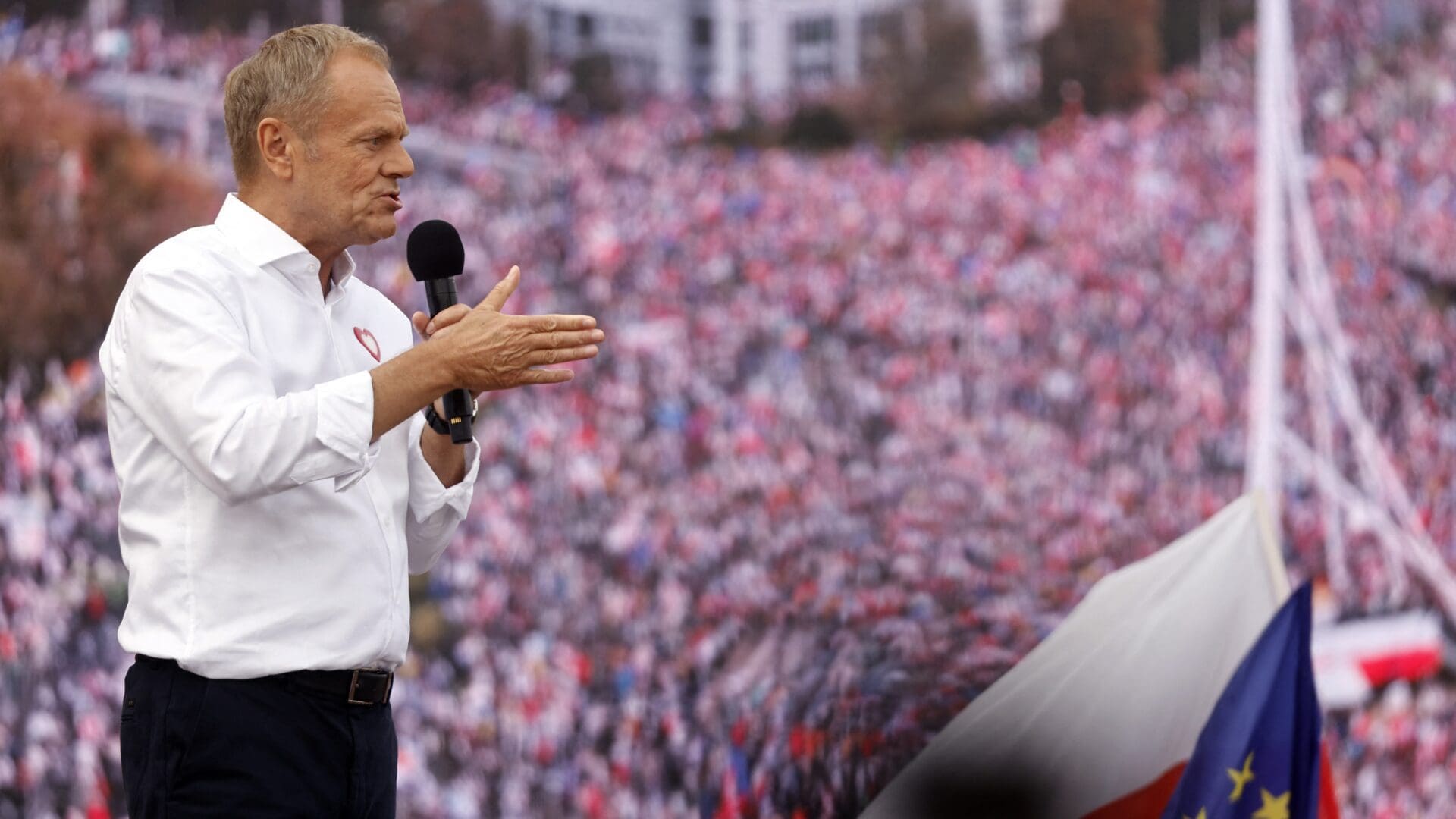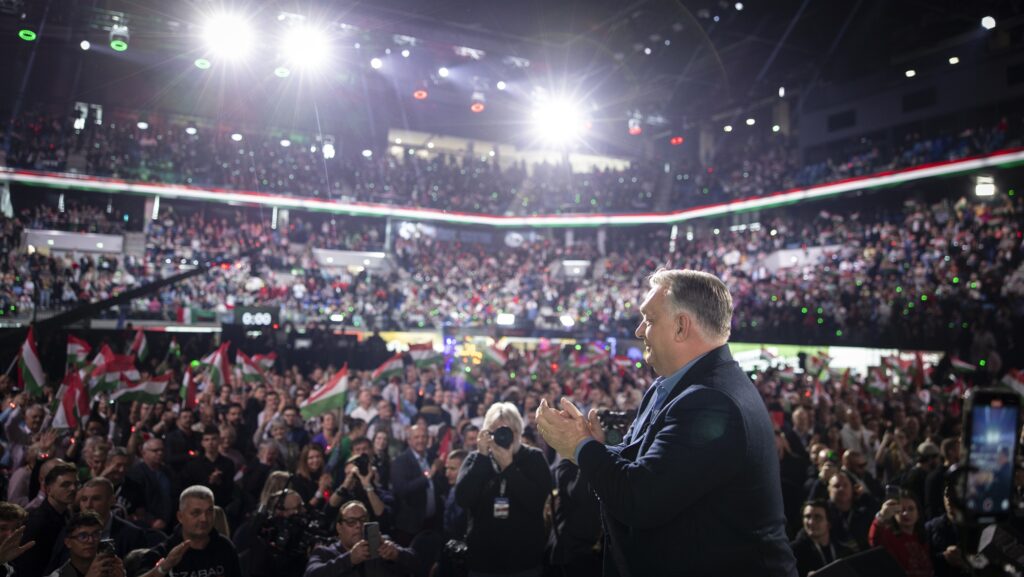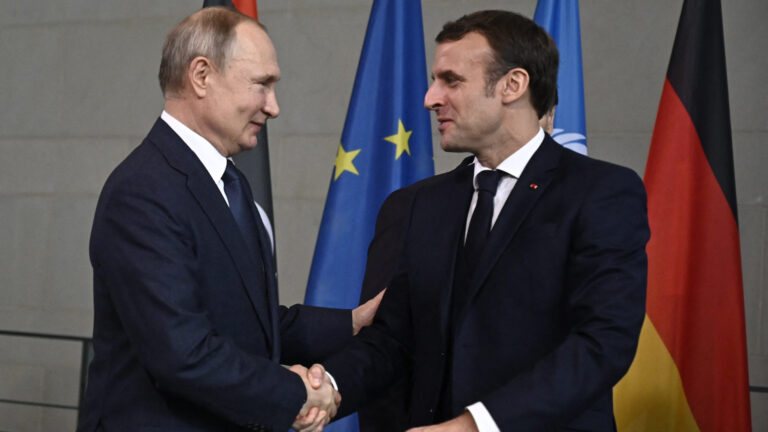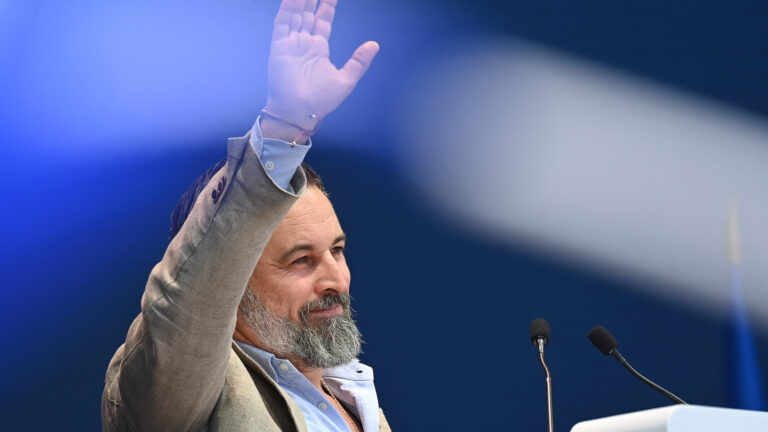On Sunday, 1 October, during the Law and Justice (PiS) party congress in Katowice, Prime Minister of Poland Mateusz Morawiecki declared that in the parliamentary elections on 15 October voters would decide whether Poland remains a sovereign state or becomes a ‘European province.’ Meanwhile, a large opposition rally took place in Warsaw, with estimates of the number of attendees varying from tens of thousands to one million.
The Law and Justice (PiS) party, which has led the governing coalition since 2015 through two government terms, held its final large-scale campaign congress before the parliamentary elections at the Katowice sports arena. Morawiecki stated that voters would decide whether Poland becomes a ‘European land, a European province,’ or remains a sovereign country. He listed PiS’s economic successes and mentioned that the elections were about two visions for Poland: Jarosław Kaczyński, the PiS leader, and Donald Tusk, the leader of the main opposition party, Civic Platform (PO), with their respective ‘Polish’ and ‘German’ visions.
Morawiecki accused PO of wanting to implement the EU migration pact, which includes the distribution of migrants, as quickly as possible.
He urged Poles to vote against the EU migration plan in a referendum to be held on election day.
Morawiecki also criticized the statements made by Volodymyr Zelenskyy, the Ukrainian president, about countries opposing Ukrainian grain exports. He emphasized that PiS would protect Polish agriculture from ‘Ukrainian agro-oligarchs.’ The Polish Prime Minister stated that Zelenskyy ‘now seems to be in close alliance with Germany,’ recalling that Warsaw had been helping Kyiv since the beginning of the Ukrainian war. He warned that Berlin would always seek an agreement with Russia over the heads of Central European countries.
During his speech, Kaczyński accused Tusk of weakening Warsaw’s relations with the United States, Central European countries, and the Visegrád Group during his time in government because ‘this was expected of him by Germany and the Russians.’ He also accused Tusk of wanting to undermine democracy and the rule of law in Poland. Kaczyński pledged stable governance with PiS at the helm and emphasized that Poland wants to be part of the EU, but as a sovereign country.
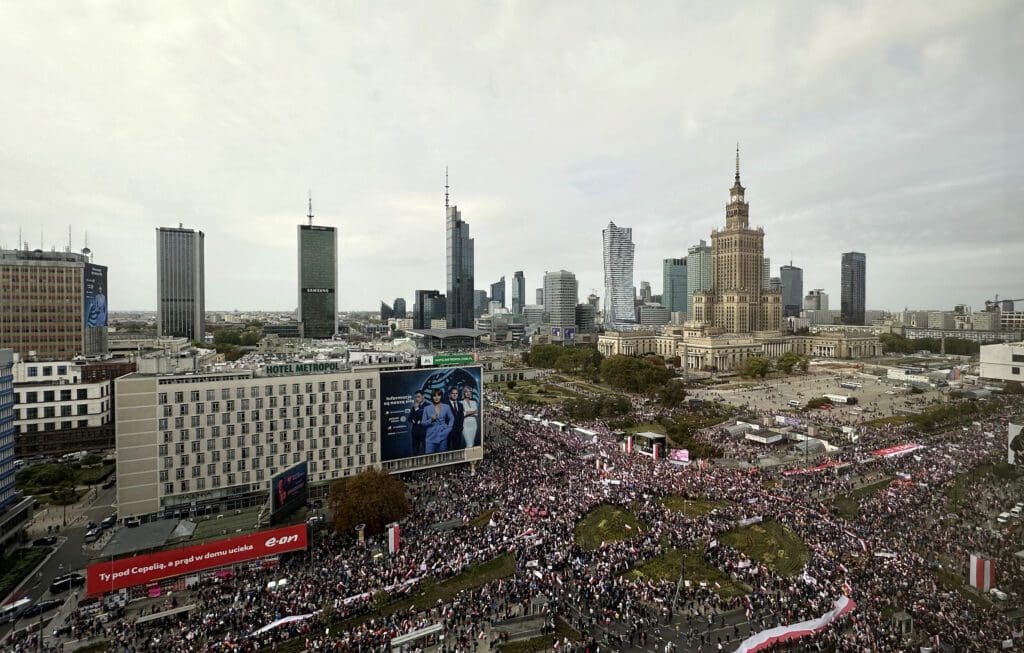
Meanwhile in Warsaw, an opposition protest was held at the initiative of the opposition Civic Platform (PO) party, attended by what the opposition-led Warsaw City Hall and Donald Tusk estimated to be one million participants, as opposed to the police reporting 100,000 participants. BBC initially spoke about tens of thousands, while most Western media put the number of attendees to around half a million. The march featured Polish, EU, and rainbow-colored flags, as well as banners with anti-government slogans, and its size may have been impressive,
but whether that truly reflects massive discontent with the current government remains to be seen;
according to most analysts, that is unlikely.
Donald Tusk optimistically stated that after 15 October, ‘change is inevitable,’ and that the victory of the PO is imminent in Poland. Rafał Trzaskowski, the mayor of Warsaw and vice-president of the PO, spoke about a forward-looking Poland, which, in the event of an opposition victory, would be ‘tolerant, diverse, European, and smiling.’ Representatives of the New Left (Nowa Lewica) alliance also appeared at the protest. Another opposition alliance, the Third Way (Trzecia Droga), held separate campaign events on Sunday.
Read more:
Sources: Hungarian Conservative/MTI/AFP

